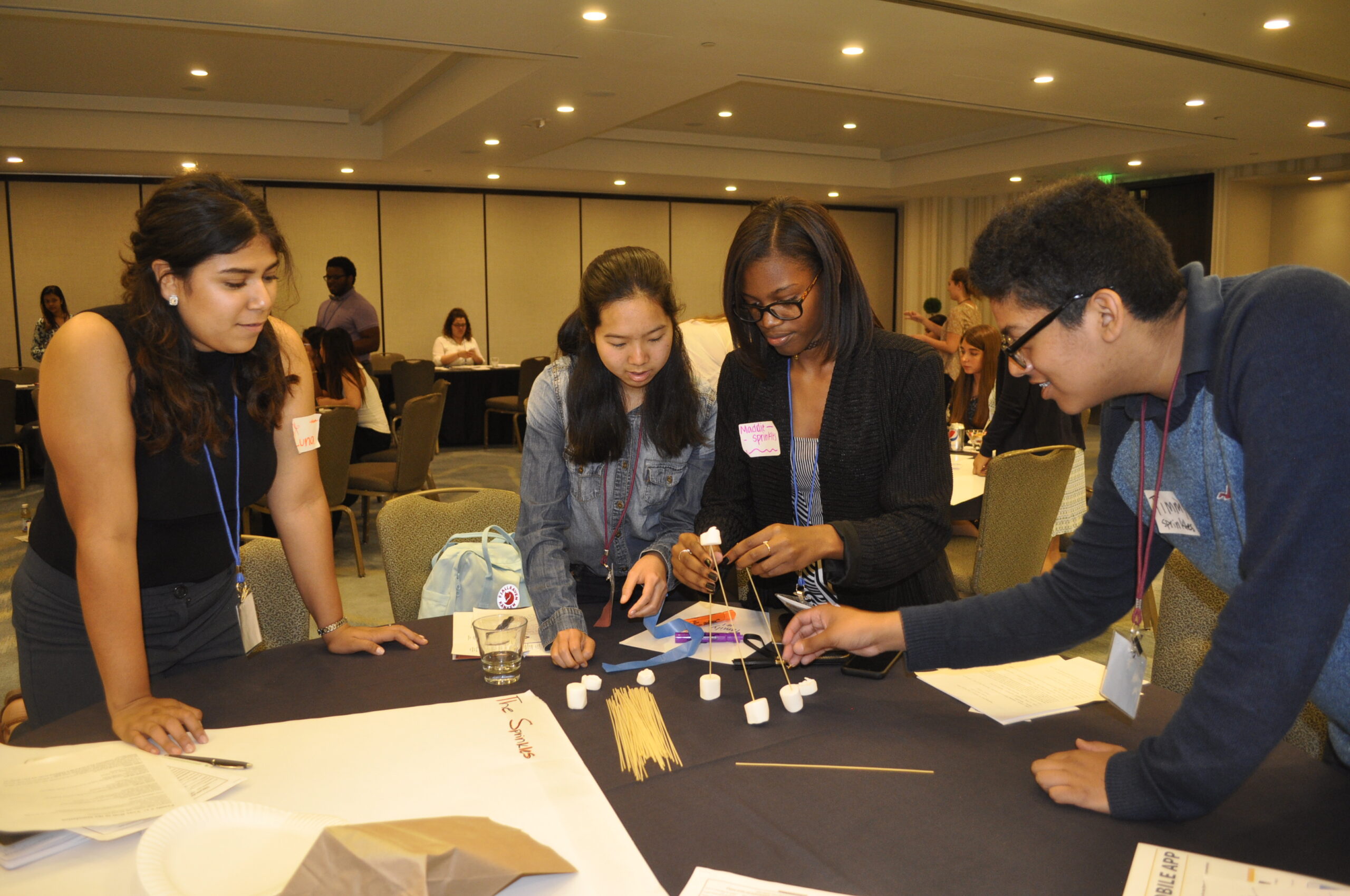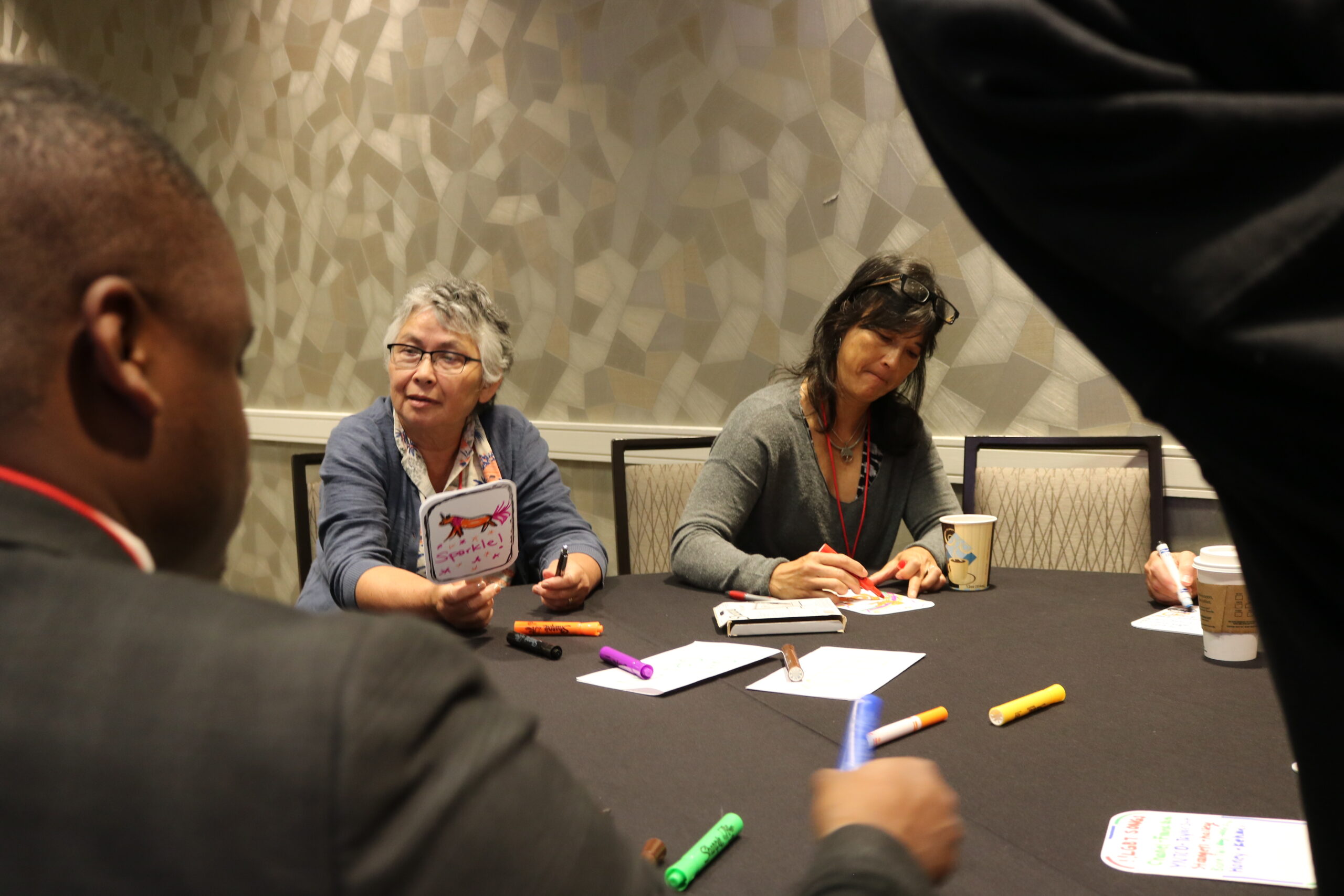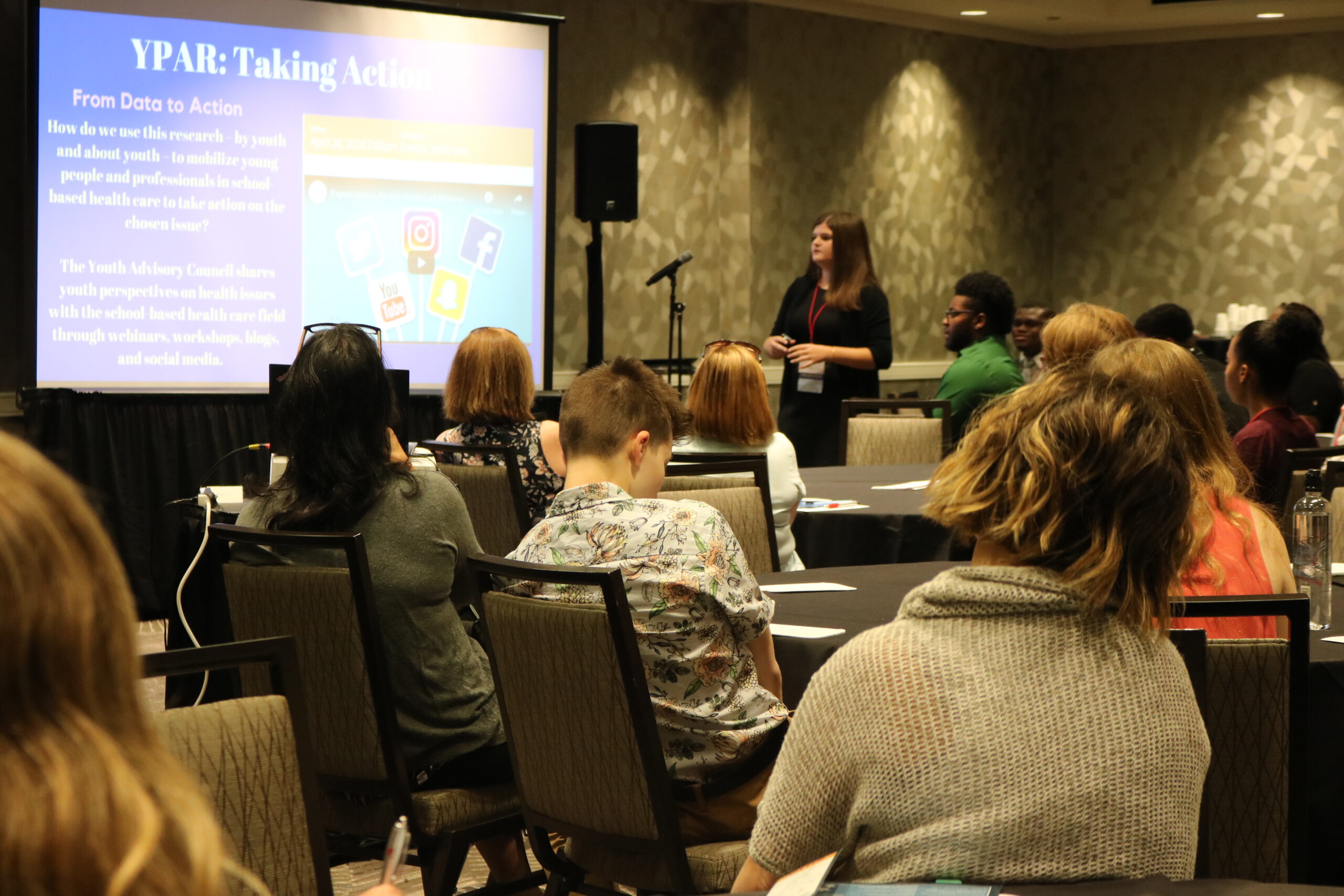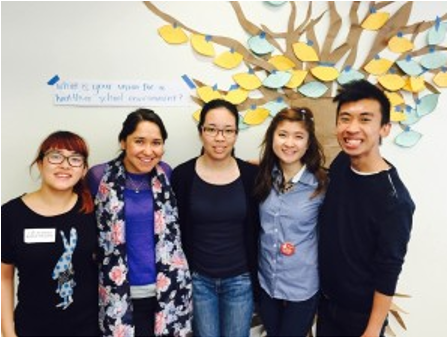





Youth leadership networks give health centers and young people the opportunity to collaborate with other individuals and groups that are doing related work and can provide different perspectives. Youth networks facilitate the organization of youth in local, state, and national policy arenas.
The Health Ambassadors Program helped me mold what I wanted to see in my career.
Just like professional networking, youth networking can lead to sharing skill sets and best practices and identifying mentors. Working with youth to identify their interests and skills will help prioritize relationship building and network targeting. For example, if your youth advisory council (YAC) specializes in peer-to-peer nutrition education, consider finding opportunities for youth to share their experiences and knowledge with other start-up peer programs. This type of peer interaction will not only boost the young people’s ownership of their program, it will also maintain an ethic of ongoing skills development, and function as an incentive to stay involved.
Before planning to convene young leaders, consider the following:
Cooperative adult allies are crucial to a successful youth convention. Depending on the age range and needs of a group, adults may need to fine-tune logistics. Adults should assist where young people’s resources may be lacking, for instance with the convening venue, meeting supplies, refreshments, and/or particularly with adult coordinator-to-coordinator correspondence.
Conferences can be an appropriate venue to share the breadth of youth engagement work. At conferences, for example, adults and young people can exchange materials on their youth programs, collaborate with other youth programs to lead workshops or discussions on youth engagement, and encourage youth leaders to interact with conference attendees. In addition to the networking and program recognition, conferences can offer skill-building opportunities for youth.
Statewide school and community health associations can play a critical role in facilitating partnerships among youth engagement programs. Since state associations are likely to know where youth engagement programs are, they can lead or support youth leadership networks. Furthermore, statewide conferences and meetings are excellent opportunities for youth leaders to come together and give young people the chance to share their successes, resources, and information with one another.

The California School-Based Health Alliance is expanding the reach of student health organizations in their state through the Youth to Youth (Y2Y) Network. This network of youth leaders connects students across California and supports efforts towards improving school-based and community-based health center services in their schools and communities. Y2Y and youth leadership networks like it are an opportunity for students to unite and collaborate with other individuals and groups that are doing related work, and provide different perspectives. Networks allow youth to share their school-based and local activities, best practices, and collective encouragement towards the common cause of adolescent health.
Youth networks also provide a strong base when pursuing advocacy mobilization and facilitate the organization of youth in local, state, and national policy arenas. Since its launch in 2010, the Y2Y network has worked collaboratively to support a variety of school-based and local health initiatives including community-based research projects, awareness campaigns, and workshops for meetings and conferences. This type of meaningful peer-interaction can boost young people’s ownership and familiarity with programs both within and outside their school while maintaining an ethic of ongoing skill development.
In addition to providing state-level mentorship for Y2Y local programs, the California School-Based Health Alliance has hosted four statewide Y2Y Conferences. Conferences allow adults and youth to exchange materials on their youth programs, collaborate with other youth programs to lead workshops or discussions on youth engagement, and encourage youth leaders to engage with conference attendees. Y2Y Conferences in northern and southern California brought together over 250 youth for one-day to engage with public health professionals and participate in workshops on public speaking, obesity prevention and healthy living, and health advocacy. The Y2Y Network has proven to be a useful tool for grassroots organizing and maintaining deeper connections with the youth-led school health field and their associated SBHCs and community partners.